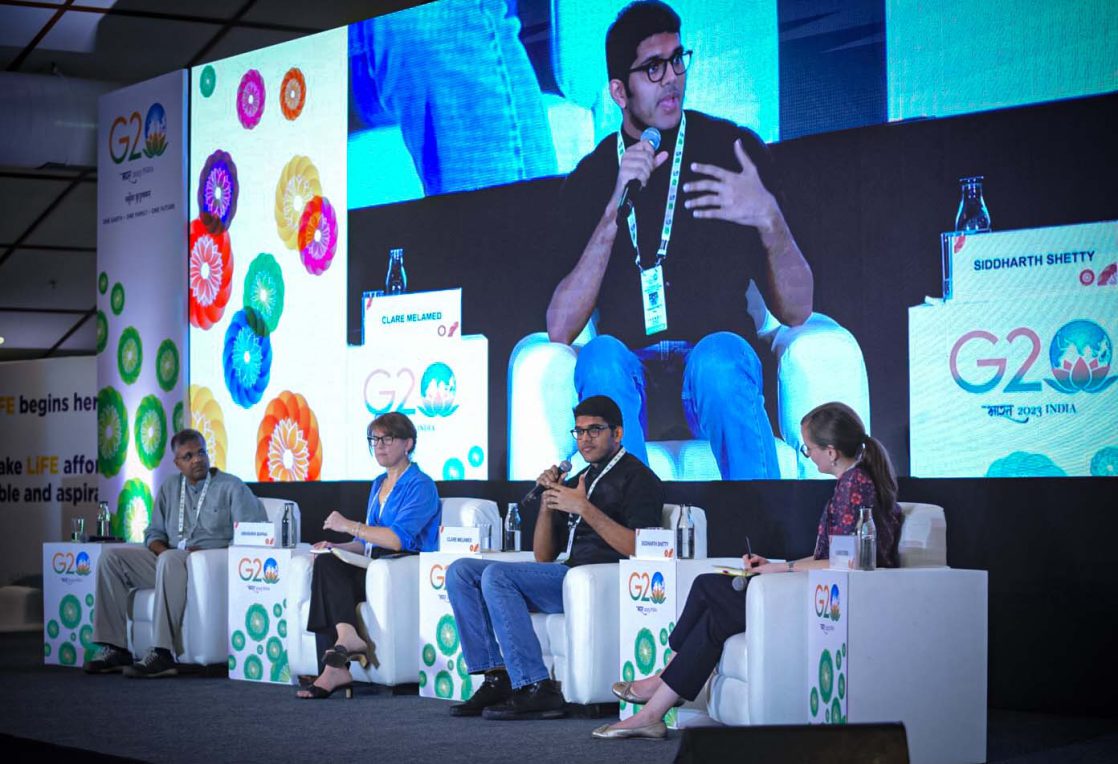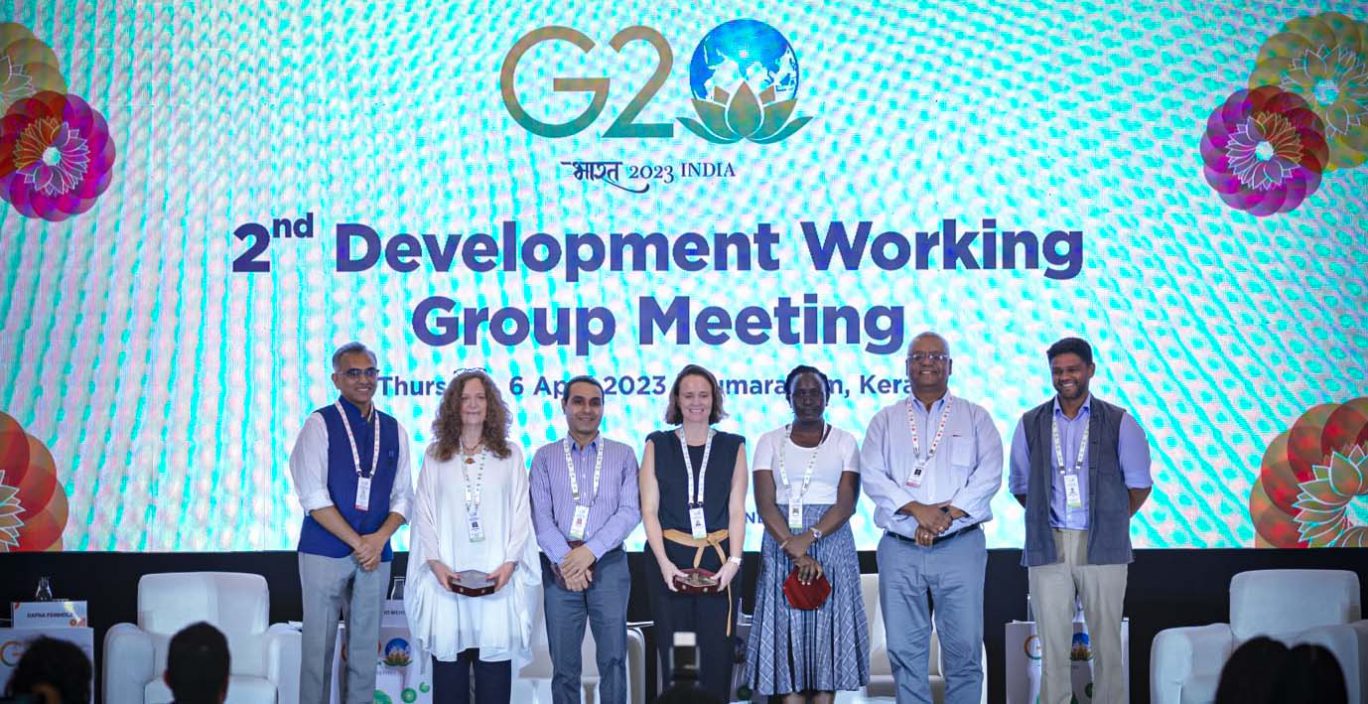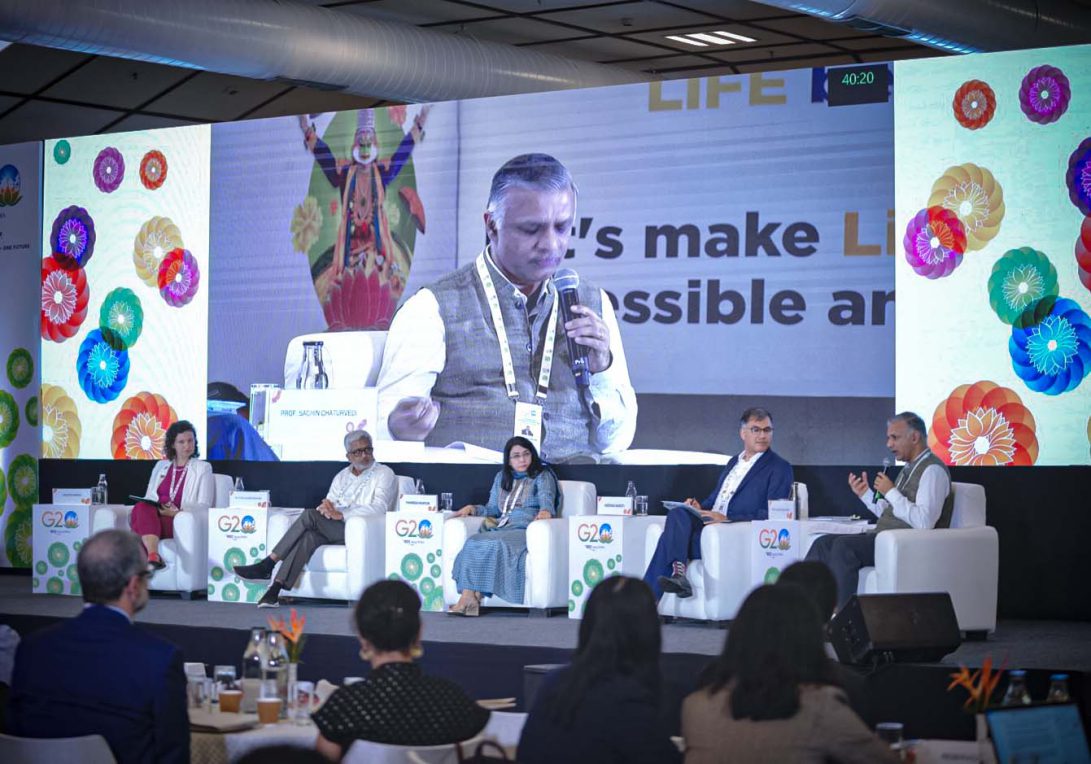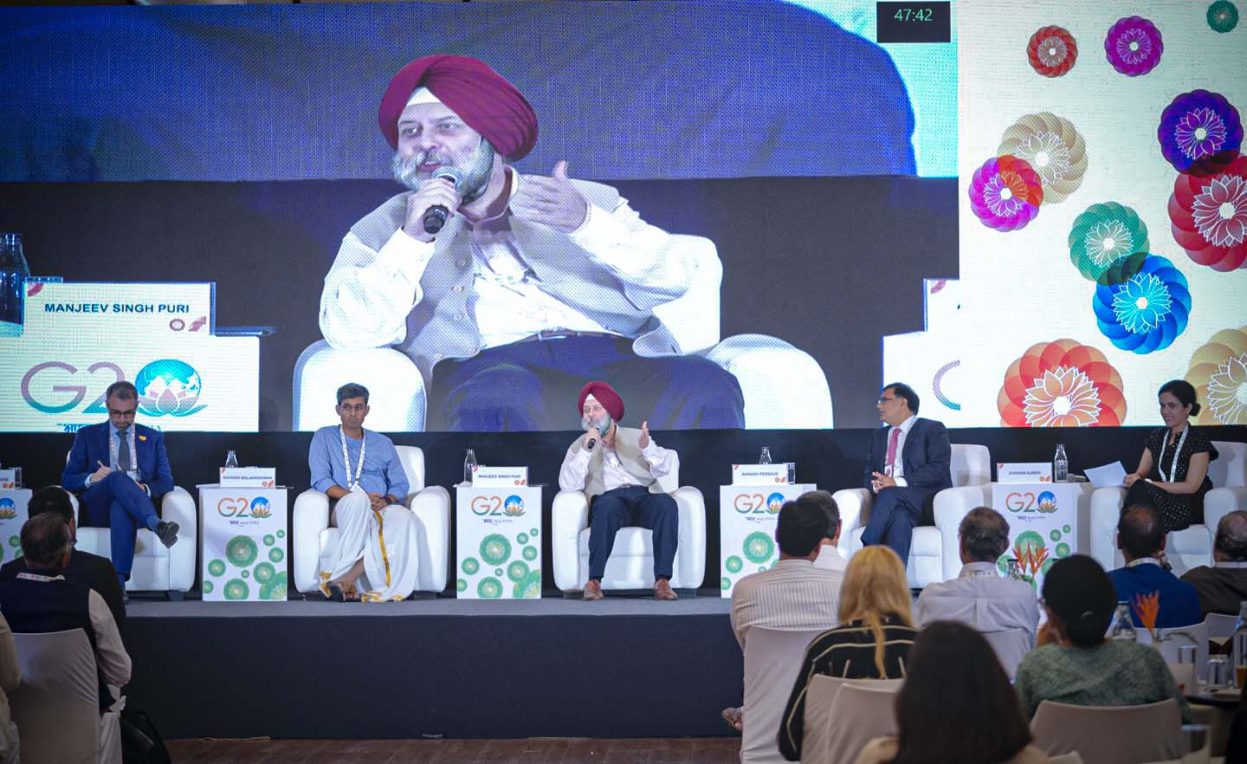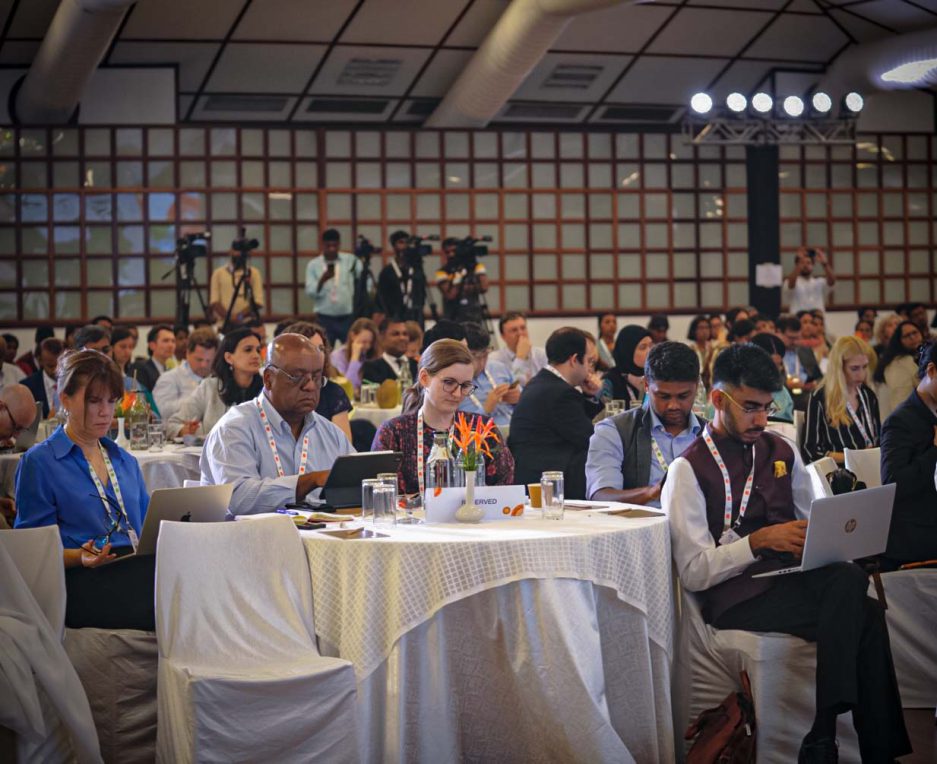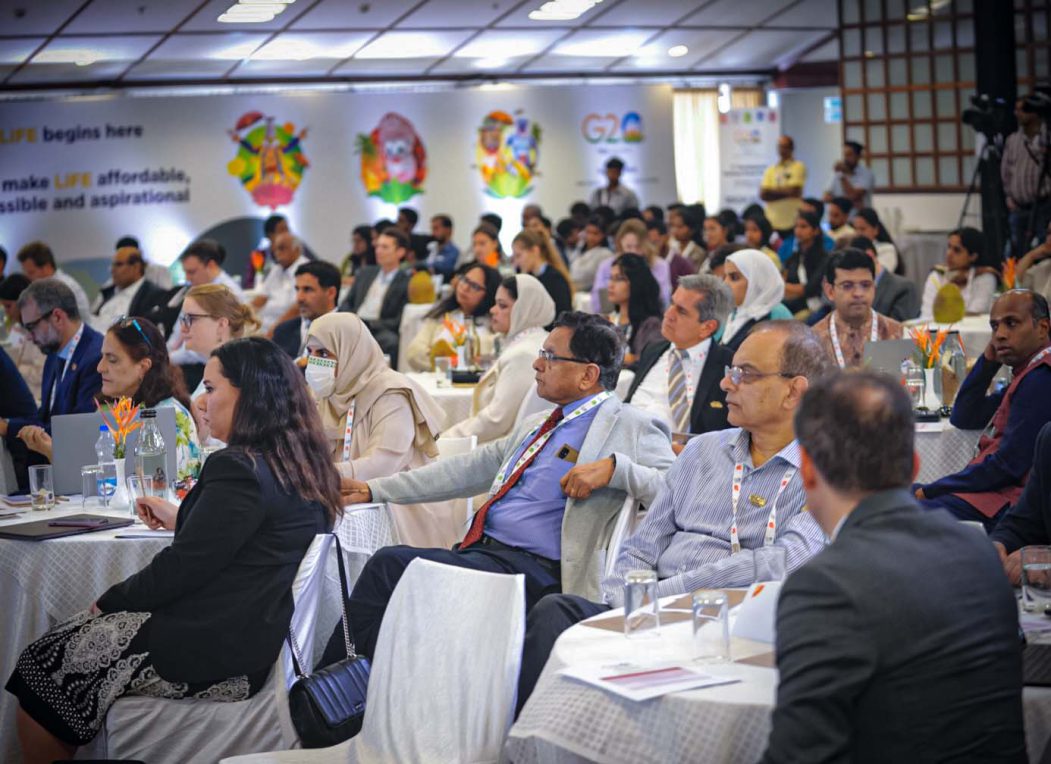On the sidelines of the 2nd Development Working Group meeting, side events on ‘Data for Development’ and ‘Towards a Sustainable Future: Through Lifestyle for Environment and Just Green Transitions’ were organized by the Ministry of External Affairs, Government of India and G20 Secretariat in partnership with Research and Information System for Developing Countries (RIS), The Energy and Resource Institute (TERI), United Nations in India, Digital Impact Alliance (DIAL), and United Nations Conference on Trade and Development (UNCTAD). It saw huge and active participation. Over 150 delegates and participants from G20 Members, 9 invitee countries, and various international and regional organizations, along with representatives from government, intergovernmental organizations, civil society and private companies were part of the events of the day.
Side event: Data for Development
The event emphasized on timely, reliable and accessible data being key to meaningful policy-making, efficient resource allocation, and effective public service delivery. The need for assistance for developing countries to build their data capacities to bring about real development impact and the need to curb data misuse was highlighted.
The first session on ‘Human-centric approaches to D4D’ saw lively discussions on ensuring that D4D is inclusive, transparent, consent-based, integrous and accountable. The speakers included Ms. Claire Melamed, Global Partnership for Sustainable Development Data; Mr. Siddharth Shetty, Co-founder, Sahamati and Advisor, Digital Public Infrastructure, Ministry of Finance and Dr. Abhishek Bapna, Google Research and was moderated by Dr. Laura Cyron, Economic Affairs Officer, UNCTAD. The second session on ‘Need for Capacity Building for D4D’ was moderated by Mr. Fayaz King, Advisor to the Office of UN SG’s Special Envoy on Technology and the panelists included Ms. Diana Sang, Digital Impact Alliance; Mr. Jojo Mehra, eGov Foundation; Ms. Chrissy Meier, Digital Public Goods Charter and Ms. Dafna Feinholz, UNESCO. The session highlighted the gaps in capacity building in D4D and the role of governments, civil society and private sector in D4D capacity building.
Side event: Towards a Sustainable Future: Through Lifestyle for Environment and Just Green Transitions’
Two panels were organised as a part of this side event. In the panel moderated by Professor Sachin Chaturvedi, Director General of RIS, on ‘LiFE: An Engine for growth’- panelists discussed how the Lifestyle for Environment (LiFE) approach can drive global growth, while meeting the ambitious environmental goals. The panelists Dr.Fahmida Khatun, Executive Director, Centre for Policy Dialogue, Mr. Heerad Sabeti, CEO of The Fourth Sector Group, Dr. R Balasubramaniam, Founder, SVYM & GRAAM and Ms. Celeste Cristina Badaro, Advisor, G20 Sherpa office deliberated ways on how to create an environment for adoption of LiFE through sustainable production and create green ecosystems and infrastructure to empower individuals, the possible international financial instruments for unlocking financing for promoting sustainable lifestyles and intrinsic interlinkages between the development and environment including climate agenda.
In the second panel moderated by Ms. Sunaina Kumar on ‘Just green transitions: A comprehensive, integrated approach’ speakers discussed how to make transitions that are globally just and the need for an international enabling environment that supports a development paradigm which reduces the trade-offs between development, environment and climate agendas. The panelists: Mr. Avinash Persaud, Special Envoy to the Prime Minister of Barbados on Investment and Financial Services, Amb. Manjeev Singh Puri, Distinguished Fellow, TERI, Mr. Rathish Balakrishnan, Co-founder, Sattva Consulting and Mr Giuseppe de Simone, Strategic Planning Officer, UNIDO highlighted the means of implementation for creating an international enabling environment viz., financing, technology, capacity building, coherence in policy support and the various opportunities for transitions that are globally just as – a driver of better jobs, financing and socio-economic opportunities, and contribution in gender equality, and overcoming existing inequalities.
